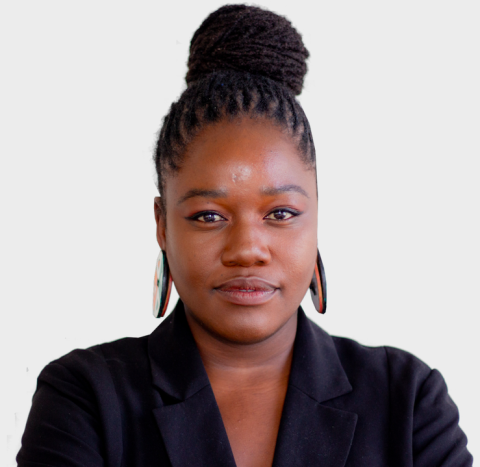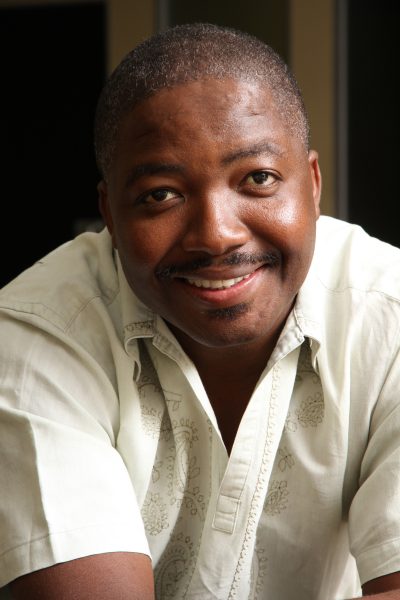African Leader
Navigating the Storm
Six weeks into his new job as CEO of mining company Exxaro – the largest black-owned company on the Johannesburg Stock Exchange (JSE), with a market capitalisation of R24-billion at the time of going to press – Mxolisi Mgojo was preparing to present a bold vision of the 10-year-old company’s future to his board.
At the beginning of April 2016, Mgojo stepped into the shoes of Sipho Nkosi, the legendary leader who steered the company during its first decade, after spending a year shadowing him as a mentee.
He started his job soon after the end of a perfect storm of collapsing commodity and share prices, which had resulted in a refinancing of the company’s landmark 2006 black economic empowerment (BEE) transaction.
Commodity share prices have recovered since the beginning of 2016. And maybe Mgojo arrived at the perfect moment: the start of a new cycle.
However, he says: “The recent uptick in iron-ore prices could be due to temporary restocking. Our analysis tells us that commodity markets will be flat for the next three years.
“There is excess capacity in China and oversupply in many markets. For me, the state of the steel market is a good barometer for the health of commodities. Many commodities we produce, such as metallurgical coal and iron ore, are used in steel production. There is an oversupply in the steel market.
“However, I have come to realize that I can never control share markets, commodity prices and the exchange rate. I am not bothered about whether we are now at the bottom or the top of the cycle. I have learnt that if you set out to build a legacy, the money will take care of itself.”
Mgojo says that the priority now is to build a resilient business that can survive through all commodity cycles. “In 10 years’ time, what will the world look like? What will disrupt our industry? Should we not be the disruptor before we get disrupted? How can we reinvent ourselves to remain relevant in the next 10 years?”
He adds that after Kusile and Medupi, South Africa may not build another large power station and that renewables are already competitive with coal. “In a few years’ time, storage technology will advance further, and renewables will be able to provide continuous power. We may not need another independent coal-power producer. A few years ago, Germany accounted for a big portion our coal exports. Today, many Germans are off the grid, because of distributed power generation and smart grids. There is now 3D printing, and 4D is on the way.”
According to Mgojo, the challenge will be to use new technologies to develop intelligent mines that increase productivity within the core business. “If not, somebody else will find a way to mine smarter and make us redundant,” he says.
Exxaro will also look at opportunities within related or adjacent industries that leverage its core assets and capabilities. For example, restructuring of the industry could create new opportunities in power generation, using Exxaro’s coal reserves. Also, mining companies are one of the country’s biggest landowners. They have significant water resources.
“How do we combine our land, water and energy resources to create new economies and an ecosystem that ensures local communities will remain sustainable long after the mines have shut down?” Mgojo asks. “The next opportunity will be to create transformational businesses that will disrupt the core and adjacent businesses. So we have to change our organisation’s DNA and culture. We have to learn, evolve, adapt and create of our future or change will disrupt us. The capital-allocation decisions of a 21st miner are different. We must decide how much we invest in core, adjacent and transformational businesses.”
The man behind the name
Mgojo has had a rollercoaster of a life story, and a career with as many ups and downs as there have been commodity cycles. After growing up in Ntabankulu in the Eastern Cape, where he lived with his grandmother, he went to Boston in the United States with his parents at the age of 10. His father Khoza Mgojo, a celebrated theologian, spent five years at Harvard University studying for his PhD.
After his parents returned to South Africa, he stayed in the States to complete his high school career and then went on obtain a degree in computer science from Northeastern University in Boston. “I had a 50% bursary, so I worked as a petrol attendant, waiter and cleaned subways,” he says. “So I learnt independence and responsibility at an early age.”
When he returned to South Africa at the age of 22, Mgojo enrolled for an MBA at Wits. “It was a mistake to enroll at such a young age. I did not finish my degree,” he says. The next year, he enrolled for a research master’s degree in computer science at the University of Cape Town. But after 18 months, he dropped out again. “The supervisor was not in a position to guide me,” he explains. “He said I had to start from scratch – I was devastated. For the first and second time in my life, I had failed academically. I learnt how to accept disappointment.”
Mgojo then worked for a multinational information technology company as a systems analyst, and eventually found himself in London with a dream job – working on a global system integration project – and newly married.
During the early 1990s, he was retrenched after the company restructured its global operations. “I tell my children now that they should never look at a door that is closed as a failure. While it is painful at the time, there is always a lesson to be learnt,” he says.
Back in South Africa, he decided on a change of career. “Although I enjoyed my work, I did not see myself doing the same thing in my 40s and 50s,” he says. “I wanted to get business experience.”
He took a big pay cut and started at the bottom in banking. But he soon rose in the industry to become an investment banker. He worked for companies such as Thebe Investments and Nedcor.
During this period, he met Nkosi, who invited him to form part of a team that was bidding to buy coal assets – the Matla, Glisa, New Clydesdale and Arnot mines – from Anglo American and BHP Billiton. “I turned him down the first time,” Mgojo recalls. “I was back in sheltered employment and recovering from a failed BEE venture. [But] he eventually convinced me to join.”
Eyesizwe (one of the original companies that merged to form Exxaro) was selected from 65 bidders after a two-year process. “In our submission, we said we wanted to create a diversified resource and energy business with a global footprint,” Mgojo explains. The R400 million transaction required an own contribution of R3.5 million from the founders, R200 million of bank debt and facilitation by the sellers, who bought 20% of Eyesizwe’s shares and provided mezzanine debt and interest-free loans.
In January 2001, Eyesizwe took over the running of the business. “I was head of marketing [at the time],” says Mgojo “The problem was that I knew nothing about marketing and commodities. But Sipho introduced me to Gordon Osterloh, a former colleague of his from Ingwe Coal, who then became my mentor. I immersed myself in all aspects of the business.”
In October 2006, Anglo American announced that it would split Kumba Resources – which had been created in 2001 after state-owned Iscor had demerged its downstream mining assets – into two companies: Kumba Iron Ore (KIO) and Exxaro. Anglo took control of KIO, and Exxaro retained 20% of KIO’s shares. A group of black shareholders (BEE Holdco) led by Nkosi’s Eyesizwe SPV bought a 53% stake in Exarro, which then had an enterprise value of R16-billion. The financing included loans worth R7 billion, provided by Anglo (R2.8 billion), the Industrial Development Corporation (IDC) (R1.2 billion), banks (R3 billion) and R1.4 billion proceeds from the sale of Eyesizwe Coal. Exxaro, which owned the Grootgeluk, Leeuwpan and Tshikondeni coal mines, paid Eyesizwe Coal R1.6 billion for its four mines. Exxaro also had other mineral sands and base metal interests.
EBB and flow of business
In November 2006, Exxaro listed on the JSE at a price of about R57 a share, which valued the company at R20 billion and the BEE Holdco stake at R10.6 billion. On 27 February 2012, Exxaro’s share price reached a high of R215, which valued the company at R76 billion and the BEE stake at R40 billion. But lock-in clauses to preserve the BEE credentials of Exxaro and KIO prevented black shareholders from selling their shares.
“At that point, we could have paid off the loans in our sleep and remained with a substantial unencumbered shareholding of maybe 40%,” Mgojo says.
In December 2015, the share price hit a low of R40, which valued the company at about R14 billion and the BEE stake at about R7 billion. Last year, Exxaro and the IDC provided BEE Holdco with loans to enable it to honour its debt covenants.
Mgojo says there has to be a better way of structuring BEE transactions. “There could be a warehousing mechanism that will enable black investors to sell or reduce their stakes, while the previously empowered company looks for new black investors,” he suggests.
BEE Holdco now has a debt of about R4 billion. The lock-in provisions expire in November 2016. The company plans to enter into a new transaction to retain its black shareholding of more than 50%. By December 2015, Exxaro had revenues of R18.3 billion, virtually all of them from its coal operations.
The group produced 42-million tonnes of thermal coal, most of which were sold to Eskom. It also has an investment portfolio of associate (or non-managed) companies that is worth R20 billion.
The major investments include a 44% stake in New York Stock Exchange-listed Tronox, which is the world’s largest integrated producer of titanium ore and titanium dioxide, and the shareholding in Sishen Iron Ore Company, which houses KIO’s operating assets.
The company is reviewing this investment portfolio, as some of these assets could be sold. In 2012, Exxaro invested R5.8 billion in the Mayoko Iron Ore Project in the Democratic Republic of Congo and wrote off the whole amount in 2014.
Moving ahead boldly
Mgojo pays tribute to Nkosi’s leadership of Exxaro as he ponders the way forward. “Sipho had a bold vision and an empowering management style,” he says.
“During the leadership transition phase over the past year, he gave me space and freedom to start shaping the business. He told me, ‘You know where you want to take this business. Start taking us there. Don’t wait for 2016.’”
After 15 years of learning the ropes in the industry, most of the time in the shadow of his mentor, Mgojo is ready for the challenge.



 Sign-up and receive the Business Media MAGS newsletter OR SA Mining newsletter straight to your inbox.
Sign-up and receive the Business Media MAGS newsletter OR SA Mining newsletter straight to your inbox.